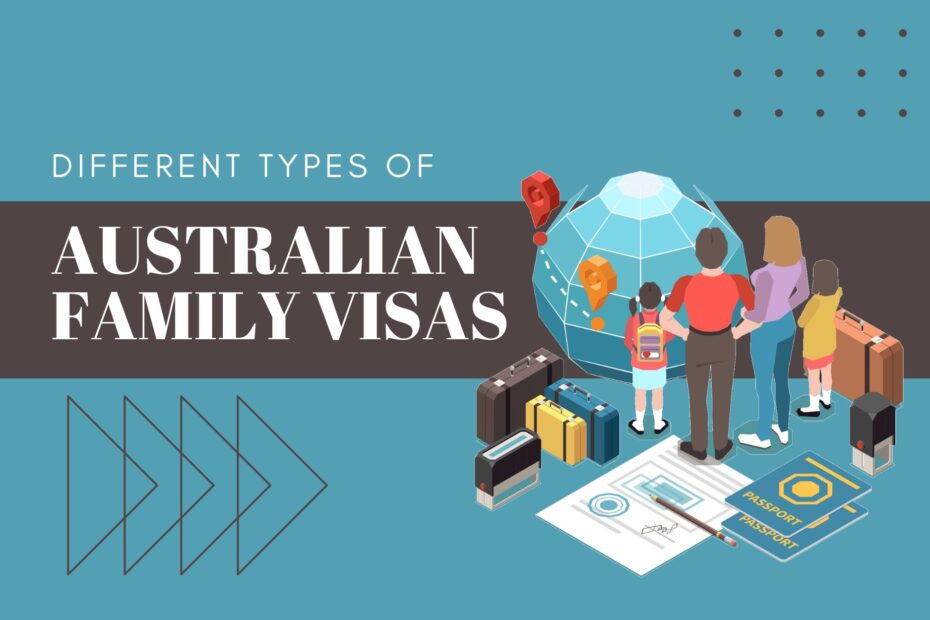Australia is a popular destination for individuals who yearn to reunite with their family members who already call the land down under their home. The Australian government is known to be quite generous in offering several types of family visas that allow individuals to sponsor their loved ones to come and live with them in the country. In this article, we’ll throw some shrimp on the barbie and explore the various types of Australian family visas and their eligibility requirements.
Partner Visas
If you’re in a committed relationship with an Australian citizen or permanent resident, and you want to live with them in Australia, a partner visa may be your best bet. The requirements for obtaining a partner visa include proving that you have a genuine and ongoing relationship and meeting the health and character requirements.
To apply for a partner visa, you’ll need to demonstrate that you’re in a bona fide relationship with your Australian partner. Evidence of joint financial commitments shared living arrangements, and emotional support for each other can help to establish this. You’ll also need to complete an online application, attend an interview with immigration officials, and provide supporting documentation. Since the process can be complicated and time-consuming, seeking professional assistance is strongly advised.
Once your partner visa is granted, you’ll have the right to live and work in Australia. You may even be eligible for permanent residency after a certain period of time. However, keep in mind that partner visas are not available to everyone, and you’ll need to meet strict eligibility criteria. It’s important to understand all of the requirements and seek professional guidance before you apply.
Child Visas
Looking to bring your child to Australia to live with you? Child visas are a popular option for parents and relatives who are Australian citizens, permanent residents, or eligible New Zealand citizens. There are several types of child visas available, including Adoption visas, Orphan Relative visas, and Dependent Child visas.
To be eligible for a child visa, your child must be under 18 years of age, unmarried, and dependent on you as the sponsoring parent or relative. You must also meet certain eligibility criteria, including being an Australian citizen, permanent resident, or eligible New Zealand citizen and meeting certain character and health requirements.
The application process for child visas involves submitting an application, paying the relevant fees, and providing supporting documentation, such as your child’s birth certificate, evidence of your citizenship or residency, and evidence of your relationship with your child. The processing time for child visas can vary depending on the type of visa and individual circumstances.
Once your child visa is granted, your child can live and study in Australia, access healthcare services, and travel to and from Australia as often as they wish. After living in Australia for a certain period of time, your child may even be eligible to apply for Australian citizenship. It’s important to carefully consider all the requirements and seek professional advice before making an application.
Parent Visas
If you’re a parent or caregiver of an Australian citizen, permanent resident, or eligible New Zealand citizen, and you’re dreaming of migrating to Australia, then you may be eligible for a parent visa. Now, there are two types of parent visas that you should know about: contributory and non-contributory.
If you’re looking to apply for a non-contributory parent visa, then you should expect a longer processing time and limited availability of spots each year. Additionally, you’ll need to meet age, health, and character requirements, as well as pass the balance of family test, which requires that more than half of your children must live in Australia permanently.
On the other hand, if you opt for a contributory parent visa, you’ll be processed faster but will need to pay a higher application fee. You’ll still need to meet the same requirements as for a non-contributory parent visa, but you’ll also need to make a substantial contribution to your healthcare and other expenses while you’re in Australia.
It’s important to note that the application process for parent visas can be complicated and time-consuming, so it’s always a good idea to seek professional help to ensure a successful application.
Other Family Visas
Australia offers several family visa options for those who want to join their loved ones in the country. Apart from partner and child visas, there are other family visas available as well. Let’s take a look at some of them:
- Contributory Parent Visas: This visa is ideal for parents of Australian citizens or permanent residents who want to move to Australia to be with their children. While the application fee for this visa is higher than the standard parent visa, it has a shorter processing time.
- Aged Dependent Relative Visas: This visa is designed for older relatives of Australian citizens or permanent residents who are financially dependent and don’t have a spouse or children to care for them.
- Remaining Relative Visas: This visa is perfect for those who have no immediate family members living outside Australia and have a close relative (parent, sibling, or child) who is an Australian citizen or permanent resident.
Each of these visas comes with its own eligibility requirements and application procedures, so it’s important to carefully consider each option before making a decision.
Conclusion
To wrap up, there are a plethora of family visas up for grabs for folks looking to move to Australia. Whether you’re considering partner visas, child visas, parent visas, or other family visas, it’s crucial to grasp the eligibility criteria, requirements, and application process for each category to pick the one that fits you best. Enlisting the help of a professional can also aid in streamlining the application process and enhance the chances of securing the visa.
